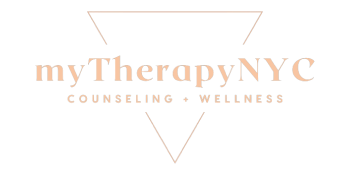Music is a universal language that transcends cultures and generations. It offers more than just entertainment. It’s a powerful tool for healing, capable of transforming our physical and mental well-being for the better. Therapists increasingly incorporate music and therapy into their sessions, unlocking their potential to address various challenges and promote overall wellness.
What's the Science?
The science behind music’s influence lies in its ability to activate various brain regions. When we listen to music, the limbic system, responsible for emotions and memories, lights up. This explains why certain songs can evoke powerful feelings of nostalgia or joy. But music’s impact goes beyond emotions. Upbeat tempos can increase heart rate and energy levels, while calming melodies can trigger the release of stress-reducing hormones like dopamine and serotonin. These physiological responses translate into real-world benefits, particularly promoting somatic grounding – the practice of bringing awareness into your body and connecting with the present moment.
Somatic grounding is especially useful for those experiencing anxiety or feeling overwhelmed. Calming music with slower tempos and gentle melodies can activate the parasympathetic nervous system, promoting relaxation and a sense of calm. The rhythmic nature of music can further provide a sense of structure and stability. Focusing on the beat helps regulate breath and heart rate, promoting a feeling of groundedness. Certain types of music can even help evoke emotions that can be cathartic to express, acting as a form of somatic release and promoting emotional balance.
Music therapy is recognized in the medical field with documented benefits for various conditions. Studies show that listening to calming music can help lower blood pressure and anxiety levels, and pain perception. Music can also combat chronic stress, which weakens the immune system. Its ability to lower stress hormones like cortisol contributes to a stronger immune response and overall physical well-being. Soothing music can also improve sleep quality by quieting the mind and promoting relaxation, which is essential for the body’s natural healing processes.
Using Music to Manage Stress and Anxiety
The impact of music extends far beyond physical healing. Upbeat music with positive lyrics can elevate mood and combat symptoms of depression. Singing along further increases feelings of happiness and social connection. Music can also be a powerful tool for managing stress and anxiety. Calming melodies can promote feelings of calm and combat symptoms of anxiety like racing thoughts and muscle tension. Studies suggest that music can improve cognitive function, especially in older adults. Listening to music or playing an instrument can stimulate the brain and help maintain mental acuity. For those struggling to connect with their feelings, music provides a safe space to explore and express emotions that might be difficult to articulate with words. Therapists can use music to help clients identify emotions triggered by songs, lyrics, or even the creation of music itself. This can be a valuable tool for processing and releasing bottled-up emotions, particularly for those struggling with depression, trauma, or grief.

Music in Therapy
Therapists can incorporate music into sessions in various ways, depending on the client’s needs and goals. For example, music analysis might involve a client choosing a song that reflects their current mood or a specific challenge. Discussing the lyrics, melody, and emotions evoked by the music can provide valuable insights into the client’s thought patterns and feelings. Therapists may also use music creation techniques like drumming, songwriting, or playing simple instruments to help clients express themselves creatively, especially for those who find verbal communication difficult. Additionally, guided music visualization exercises can be powerful tools for promoting relaxation and somatic grounding. By focusing on imagery and bodily sensations evoked by the music, clients can connect with their breath and physical sensations in the present moment. This technique can be particularly helpful for those struggling with anxiety or dissociation.
Music is more than just enjoyable, It’s a powerful tool for healing, self-discovery, and overall well-being. That Spotify playlist you made when you broke up with your partner or the one you made when you couldn’t find the motivation on the treadmill has very real effects on your mental health. Science has proven that music can impact your physical health in measurable ways as well. When words aren’t enough, putting them to the right melody could provide the relief you need!
Are you interested in using music in therapy? Reach out to myTherapyNYC to find out which of our therapists would be a good fit for you!
How do you use music for your mental health? Join the conversation in the comments below!
- Using Music in Therapy: How to Find Harmony in Healing - November 14, 2024



